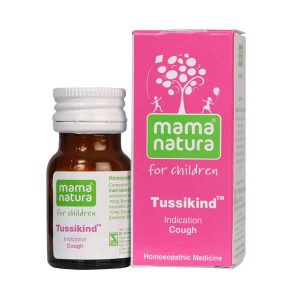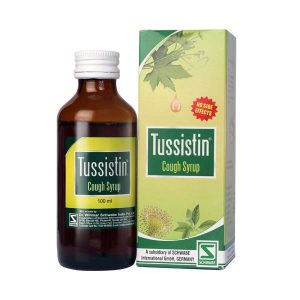
Spasmodic cough
-
-18%
 Rated 5.00 out of 5 based on 1 customer rating(1)
Rated 5.00 out of 5 based on 1 customer rating(1)₹198.00₹162.36 You Save: ₹35.64 (18%)Add to cart -
-18%
 Rated 4.67 out of 5 based on 12 customer ratings(12)
Rated 4.67 out of 5 based on 12 customer ratings(12)₹115.00₹94.30 You Save: ₹20.70 (18%)Add to cart -
-18%
 Rated 5.00 out of 5 based on 2 customer ratings(2)
Rated 5.00 out of 5 based on 2 customer ratings(2)₹125.00₹102.50 You Save: ₹22.50 (18%)Add to cart -
-18%
 Rated 4.50 out of 5 based on 6 customer ratings(6)
Rated 4.50 out of 5 based on 6 customer ratings(6)₹100.00₹82.00 You Save: ₹18.00 (18%)Add to cart
Showing all 4 results
Introduction
A spasmodic cough is a process which occurs suddenly or occurring repetitively which is a protective action that helps to clear the respiratory tract or passage from foreign particles. There are three phases of cough reflex viz. an inhalation (taking up of oxygen), a forced exhalation (removal of Carbon dioxide) and a violent release of air from the lungs, usually accompanied by a spasm.
Causes
- Obstructive Lung Disease
- Asthma or another bronchospasm
- Bronchiectasis
- Infectious
- Pertussis (Whooping Cough)
- Chlamydial Pneumonia (Staccato Cough)
- Croup
- Miscellaneous
- Vocal Cord Dysfunction
- Gastroesophageal Reflux disease
- Postnasal drainage (Sinusitis, Allergic Rhinitis)
Symptoms
- Runny nose
- Nasal congestion
- Red, watery eyes
- Fever
- Cough
- Vomiting
- Coughing result in a red or blue face
- Cause extreme fatigue
- It ends with a high-pitched “whoop” sound during the next inspiration of air
Investigations
- Sputum test to detect the presence of causative bacteria.
- A Blood test (Complete Blood Count) to detect elevated white blood cell count to find out infection.
- CT scan and X-ray of the chest or sinuses to see the changes in respiratory diseases, damage, or abnormalities, if any.
- Lung function tests especially spirometry to assess how your body takes in and expels air, to diagnose asthma.
- Bronchoscopy to visualize the pictures of the inside of your lungs.
- Rhinoscopy to see the pictures of the inside of your nose and nasal passages.
- Upper gastrointestinal endoscopy to detect GERD.
Complications
It can be classified either as acute or chronic. Severe complications include cough syncope (fainting due to decreased blood flow to the brain due to prolonged and forceful cough), sleeplessness, vomiting after coughing, involuntary passing of cough. Usually complications like abdominal or pelvic hernias, fractures of lower ribs due to over-exertion while coughing and costochondritis are common. Chronic or violent coughing can lead to loosening of the pelvic floor muscles and a possible cystocele
Homeopathic Management
Spasmodic cough can be corrected or managed by adopting precautions of the reasons which cause spasmodic cough as wall as homeopathy also plays an enormous role in treating it. Homeopathic medicine should be prescribed based on complete symptoms of a patient not on a single complaint. So advice to take medicine after consulting a homeopathic physician.
Following are the medicine which can be used in the cases of spasmodic cough:
- ACONITUM: A patient wake up from the sleep due to dry, hoarse, croupy cough which get worse at night and after midnight. A person develops a cold or cough mainly in the dry cold weather which getting worse from getting cold, drinking cold water, from tobacco smoke and lying on either side. Dryness of mouth and shortness of breath is associated symptoms with cough. Unquenchable thirst (very thirsty) is also important symptom present. There will be fear and anxiety of mind, with great nervous excitability; s/he usually feels afraid to go out, to go into a crowd where there is any excitement or many people; to cross the street.
- ANTIMONIUM TARTARICUM: The most important symptom of cough is a loud rattling cough with a difficulty in clear the throat from mucus which usually get worse at 4 a.m. This difficulty in breathing compel the patient to sit instead of lying down. Large collection of mucus in the bronchi when coughing as if much would be expectorated, but nothing comes up. The person generally wants cold rooms and open windows, even after suffering from cough.
- BELLADONNA: All the symptoms in belladonna has sudden onset and congestion is keynote. The cough generally associated with laryngitis (inflammation of larynx) or tonsillitis (swelling of tonsils), appeared after riding in a cold wind These patients are very restless, tired, and imagines he sees ghosts, hideous faces, and various insects, black animals, dogs, wolves. All the symptoms are worse at night. Sensitive to cold wind, especially when uncovering the head; liability to take cold.
- BRYONIA: Cough is dry, spasmodic, with gagging and vomiting with stitches about side of chest, along with pain in head as if head would fly to pieces worse after eating, drinking, entering a warm room, a deep inspiration. There is difficulty in breathing and slight motion of chest and to avoid this, patient must hold the chest with hands while breathing.
- DROSERA ROTUNDIFOLIA: Cough is continuous, deep, spasmodic and barking in character, worse after midnight. There is violent paroxysms or reappearance rapidly, scarcely able to get breath. During coughing, vomiting of water, mucus is present. The cough is increases after lying down and after midnight. There is sensation of feather in larynx which excites cough.
- FERRUM PHOSPHORICUM: Cough causes involuntary urination which aggravated in open air; touching larynx, at night. Short, dry and painful cough with tickling and soreness in chest and maybe bloody sputa. The cough, worsen from cold air, in the early morning, and after eating. Appetite is very poor, only want sour foods. Dislike meat and milk.
- HEPAR SULPHUR: Hepar sulph is excellent remedy for a croupy cough with choking sensation, especially after exposure to cold. Deep, barking & rough cough, with hoarseness and rattling of mucus increases cold air, cold drinks, before midnight or toward morning. A patient perspires during their coughing spells, and they may feel better in damp weather. They are very irritable while ill.
- IPECACUANHA: This remedy is very useful in cough associated with vomiting. Dry, spasmodic, constricted, asthmatic worse in hot, humid weather or in changing weather. Cough mixed with blood-stained mucus, constriction of the chest, and a tickling in the throat. They tend to cough with every breath with excessive salivation. They may also have sneezing and hoarseness. Whooping-cough which difficulty in breathing resulting in paleness, stiffness and blueness of face accompanied by gagging and vomiting of mucus. Nose bleeding. Rattling cough due to mucus in bronchi when inspiring; threatened suffocation from mucus.
- KALIUM BICHROMICUM: Character of cough is tough, stringy mucus which sticks to the parts, worse after eating, drinking, undressing and hot weather and feels better on lying down and in cold weather which is the characteristic feature of Kali bich. There is presence of irritation in the throat because of sensation of presence of hair in the throat.
- PHOSPHORUS: The patient is suffering from dry cough with continuous irritation the throat. There is burning sensation in spots along the spine, between the shoulder. The cough is increased when lying on left side, from talking, reading, etc while decreases by lying on right side. The person likes cold food and drinks, refreshing things.
- PULSATILLA: In Pulsatilla, cough is dry especially, in the daytime while changes to yellowish or greenish at night. The patient has to sit at night in order to breathe. The cough symptoms get worse in a warm room or warm weather, at night and get relief after be in cold weather.
- RUMEX: Rumex is used when a person is highly sensitive to cold air which causes cough with tickling sensation in the throat and always cover the face with blanket to avoid inhaling cold air. The cough got worse at night and feel better by warm application.
- SPONGIA: Spongia is one of the important medicines for a dry, barking, croupy cough. The respiration passage is dry, without any expectoration or sputum. The voice of the parson get horse due to dryness. Dry cough got worse in cold air, tobacco smoke, eating sweets and feels better after taking warm food or drinks.
CONCLUSION: Cough is a normal reflux of body as a response to various environmental factors. Continuous coughing usually present when there is presence of some disease caused by viruses and bacteria which spread to others by droplet infection. Mostly spasmodic cough is caused by a respiratory tract infection but can also be happened by smoking, air pollution, choking, asthma, chronic bronchitis, gastroesophageal reflux disease, etc. and homeopathy plays an essential and active role in treating it.
Blog Post


Effects of Diabetes, Smoking, and Other Factors on Sexual Health


Plant-based Protein vs. Animal Protein: Which is Better for Your Health?































